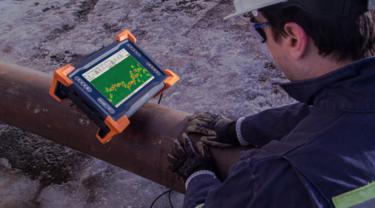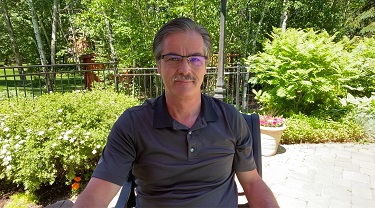Since its inception in 2009, Eddyfi has invested all its efforts in carving out its place in international markets. A niche market player, the company couldn’t count on the domestic market alone to ensure its survival.
Rather than make a geographic choice, Eddyfi gained its exporting experience in different areas of activity. It first focused on the nuclear industry, and then quickly became interested in the petrochemical industry. “We had exhausted our options in the nuclear industry after two years of operations. We therefore set our sights on the petrochemical industry, which was larger, but which we were less familiar with,” said CEO Martin Thériault.
The company then opened an office in Houston, Texas, and another in the Middle East, to gain credibility and build a network of contacts among key industry players. Mr. Thériault goes on to say, “The petrochemical industry represents an ecosystem in itself and is a fairly closed market. Our goal when it came to establishing a presence in Houston, Texas, was to be physically closer to the major companies, the nucleus of the petrochemical market where global expertise is recognized and concentrated.”
The company’s activities are now broken down by industry as follows: 75% petrochemical, 20% nuclear and 5% aerospace.
“We do business in 70 countries and have offices in Canada, the US, France, the United Arab Emirates, South Africa and the UK. Our sales are 40% in North America, 20% in the Middle East, 20% in Europe and 15% in Asia,” explains Mr. Thériault.
However, some countries remain difficult to penetrate, particularly Russia, China and Brazil. More specifically, Eddyfi’s next challenge will be to break into the Chinese market. Despite the difficulties the company has encountered in establishing a presence in certain places, it can pride itself on having been among the first Canadian companies to have sold its products in Iran.
Some aspects of the current market environment make it easier for companies looking to export,” according to Mr. Thériault. “It’s much easier now to do business abroad. People can easily access information and are easier to reach around the world. Travel has been simplified, and there are fewer borders.”
He foresees, however, that foreign currency instability will represent one of the main challenges facing exporters in the short term. Exporters should expect to have to overcome certain challenges and adapt to sudden market changes.
Mr. Thériault has his own ways of overcoming these challenges: “have a more recurring business model that is less dependent on capital, manage our risks, be nimble in our organizations to seize opportunities and adapt to certain changes, have a short-term investment vision, and ensure that our organizations are sustainable and well-built for the future.”
According to Mr. Thériault, Québec is nevertheless well positioned and has all the talent necessary to be competitive. The company’s corporate headquarters are still located in Québec City, which is the hub of the non-destructive testing industry.
Mr. Thériault added, “A partnership like the one we have with EDC is a exceptional asset, particularly because it allows us to insure receivables in the event a customer fails to pay. This aspect is crucial, because we can avoid mistrust, have insurance and know that it’s included in our liquidity strategies.”




